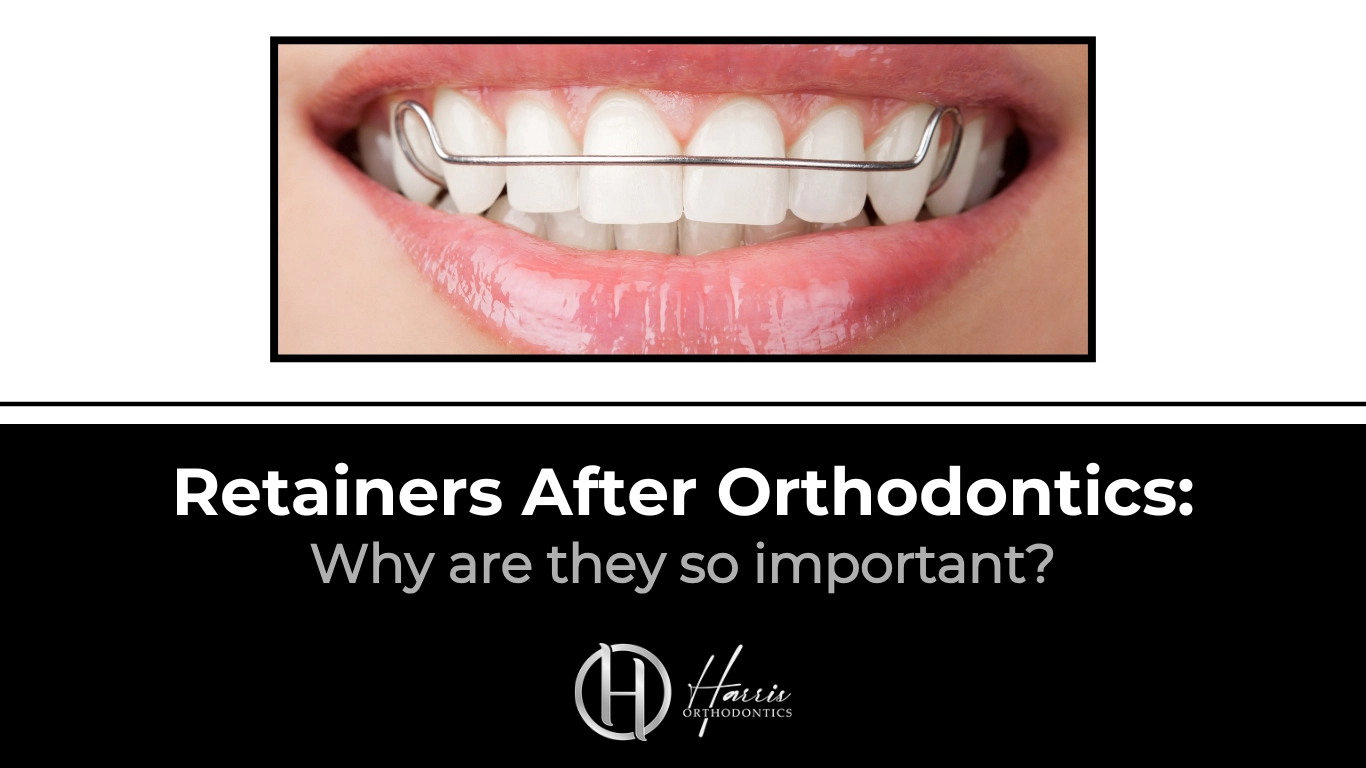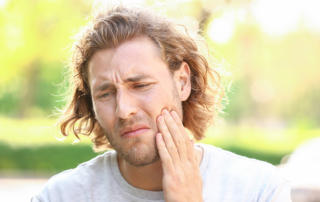Keep Your Smile Straight: Why Retainers Matter After Braces
Finishing orthodontic treatment is an exciting milestone. Whether you wore braces or clear aligners, you’ve put in the time and effort to achieve a straighter, healthier smile. But the journey doesn’t end when your braces come off. To keep your teeth in their new position, retainers are a must. At Harris Orthodontics, we’re here to help you protect your results for years to come — and it starts with understanding the role of retainers.
What Do Retainers Do After Orthodontic Treatment?
Retainers are custom-made devices worn after braces or aligners to maintain the corrected alignment of your teeth. While they might not seem as significant as braces, they are just as important when it comes to preserving your smile.
There are two main types:
-
Removable retainers, such as clear plastic models or the traditional wire-and-acrylic design.
-
Fixed retainers, which are bonded behind your teeth and stay in place long-term.
Both types work to hold your teeth in their new positions as your mouth continues to adjust after orthodontic treatment.
Why Do Teeth Try to Shift Again?
After your teeth are moved into place during orthodontic treatment, the surrounding bone and tissues need time to stabilize. During this healing process, it’s natural for the teeth to try to shift back to their original spots — a process known as orthodontic relapse.
Wearing your retainer regularly prevents this relapse, giving your bone and gums time to fully adapt to the new alignment. Skipping this step could undo months or even years of hard work.
How Long Do I Need to Wear My Retainer?
While every patient is unique, most people follow this general guideline:
-
Initial phase (first few months): wear your retainer all day and night, except when eating or brushing your teeth.
-
Maintenance phase: switch to wearing it only at night.
-
Long-term: continue wearing it at night indefinitely, as part of your nightly dental routine.
It might sound like a big commitment at first, but after a while, it becomes second nature — just like brushing your teeth before bed.
What Happens If I Don’t Wear My Retainer?
We don’t want to scare you, but it’s important to be honest: not wearing your retainer can lead to your teeth shifting out of place. In some cases, teeth can move enough that a second round of orthodontic treatment is needed.
That’s why wearing your retainer is the best insurance for your smile. It’s a simple way to protect the time, money, and energy you’ve invested in your orthodontic care.
What If My Retainer Breaks or Gets Lost?
It happens — retainers can be accidentally thrown away, broken, or even chewed by a pet. If this happens, call us as soon as possible. At Harris Orthodontics, we can help replace your retainer quickly to avoid any shifting of your teeth.
To schedule an appointment or request a replacement, give us a call at (404) 902-6912.
How to Care for Your Retainer
-
Clean it daily with cold water and a soft toothbrush.
-
Avoid hot water, which can warp or damage the retainer.
-
Always store it in its case when not in use.
-
Never wrap it in a napkin — that’s the easiest way to lose it.
-
Bring it to your checkups so we can make sure it still fits properly.
Ready to Keep Your Smile in Place?
At Harris Orthodontics, we want you to enjoy your straight smile for life. Retainers may seem like a small part of the process, but they make a big difference. If you have questions about your retainer or need to schedule a visit, we’re just a phone call away.
Call us today at (404) 902-6912 to book your appointment. We’re here to support your smile every step of the way.
Frequently Asked Questions
1. Do retainers hurt?
You might feel slight pressure at first, but they should not cause pain. This gentle pressure is normal and helps keep your teeth in place.
2. Will I have to wear a retainer forever?
Yes, nighttime wear is recommended long-term to maintain your results. Your teeth can shift at any age, so retainers are a lifelong tool for keeping your smile straight.
3. Which retainer is better: removable or fixed?
It depends on your lifestyle. Fixed retainers are convenient because they’re always in place, while removable ones are easier to clean and maintain.
4. Can I eat while wearing my retainer?
Only if it’s a fixed retainer. If you have a removable retainer, take it out before eating to prevent damage or buildup.
5. What if I haven’t worn my retainer in a while?
If it still fits, resume wearing it immediately. If it feels tight or doesn’t fit, contact us right away — early action can prevent further shifting.




